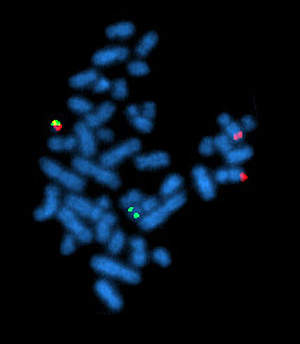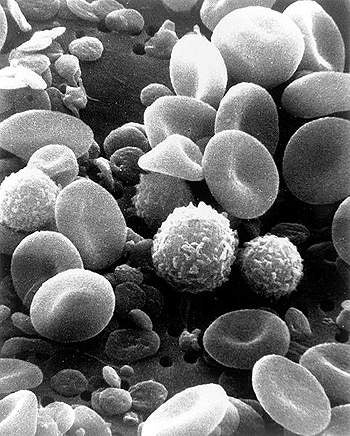Bosulif (bosutinib) is an investigational drug indicated for treating Philadelphia chromosome positive Chronic Myelogenous Leukaemia (Ph+ CML). The drug was originally developed by Wyeth Pharmaceuticals, which was taken over by Pfizer in October 2009.
Wyeth, in collaboration with Pfizer, conducted phase III clinical trials on bosulif. Based on the results of the study, the company submitted the Marketing Authorization Application to the European Medicine Agency which was accepted in August 2011. Pfizer also submitted a New Drug Application to the US Food and Drug Administration (FDA) which was accepted in January 2012.
Bosulif was approved by the FDA in September 2012 for the treatment of Ph+ CML patients.
Chronic Myelogenous Leukaemia
Chronic Myelogenous Leukaemia (CML) is a cancer of the white blood cells. The disease is caused due to the presence of an abnormal chromosome – Philadelphia chromosome – which causes the production of the Bcr-Abl protein.
The Bcr-Abl protein contains the tyrosine kinase enzyme, which drives excessive white blood cells and immature stem cells to be produced in the bone marrow. The white blood and stem cells cause to replace the red blood cells and platelets.
The CML disease occurs mostly in elderly and middle-aged people, although it affects people of all ages, and is found more frequently in men than in women. The annual incidence of the disease is one to two per 100,000 people.
According to the National Cancer Institute (NCI) approximately 5,050 patients were diagnosed with the disease in the US alone in 2009. The NCI also estimated that 22,475 people with CML disease are surviving in the US as of 2009.
Bosulif
Bosulif contains the oral dual Src and Abl kinase inhibitor with potential anti-neoplastic activity. The drug can resist CML disease and other solid tumours because of its dual mechanism action.
Clinical trials
Wyeth started a phase I / II clinical trial on Bosulif called Study 200 in January 2006. The study was conducted across 98 centres in the US, Australia Canada, Germany, Finland, Argentina, Columbia, Austria, Chile and Brazil. It enrolled 546 patients with Ph+ CML. All the patients enrolled were previously treated with imatinib or imatinib followed by dasatinib or nilotinib.
The purpose of the study was to find the safety and efficacy of 500mg of bosulif in treating Ph+ CML patients. The study will establish the maximum tolerated dose (MTD) in CML patients.
FDA approval of bosulif was based on the results of Study 200. The results indicated that patients treated with bosulif achieved a major cytogenetic response (MCyR) within the first 24 weeks. Nearly 34% of the patients previously administered with imatinib attained MCyR after 24 weeks.
Wyeth initiated phase III clinical trials on the drug in February 2008 and the study is scheduled to be completed by July 2017. The study has enrolled 502 patients with Ph+ CML disease.
It was designed to evaluate the safety and efficacy of bosulif compared with imatinib in treating Ph+ CML. Imitanib is indicated for treating CML and is being marketed by Novartis.
The primary endpoint of the study is to find the cytogenetic response rate at one year. The secondary outcome measure is to find the duration of the complete cytogenetics response (CCyR), major molecular response, complete haematologic response, comparative safety and population pharmacokinetics.
Phase III preliminary data
Pfizer disclosed the preliminary data on the phase III clinical study on 6 December 2010. The data from the study showed that fewer patients who were administered with only bosulif progressed to the advanced phase compared to the patients treated with imatinib. The study also found that there were fewer deaths in the bosulif arm than in the imatinib arm.
The patients administered with bosulif achieved CCyR faster in 13 weeks compared with the imatinib administered patients who achieved it in 25 weeks. The difference between the CcyR of bosulif and imatinib was negligible (2%), indicating a failure in meeting the primary end point.
The study also found that the patients who were administered with bosulif experienced more serious adverse events compared to imatinib. The adverse events in bosulif-treated patients were nausea, diarrhoea, rash and vomiting. The adverse events led 19.4% of the bosulif patients discontinue the treatment where as only 5.6% of the imatinib patients discontinued it due to the adverse events. Discontinuation of the bosulif arm of patients was principally due to liver enzyme elevations, while in imatinib arm it was due to neutropenia.
Marketing commentary
Pfizer holds the marketing rights of Bosulif in the US. Other medications approved for the treatment of various forms of CML include Novartis’ imatinib and nilotinib and Bristol-Myers Squibb’s dasatinib.





